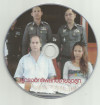When it rains if pours and for the deVere group, well known for cold calling customers offering financial advice all over the world, it’s now belting down.
deVere’s denial that it was connected with deVere Hong Kong which has been suspended by the Hong Kong Confederation of Insurance Brokers is exposed as an outright lie today – but then I guess we all knew that anyway.
The proof is in a judgment in the Hong Kong High Court where both the deVere and partners and the deVere Group Hong Kong tried to get an injunction to stop their former Hong Kong CEO Nick Smith from ‘whistle blowing’ to the South China Morning Post.
 |
| Nick Smith |
deVere’s worldwide office is based in Malta. That’s where they keep their human resources office.
The same people have squealed to the HKCIB – no doubt causing deVere’s suspension.
The High Court judgment is below. Follow Lindell Lucy at TheRapeofHongKong.com website to keep ahead of dodgy deals down that way – there is often a Thai connection;
1. This is the plaintiffs’ application for an interlocutory injunction to, inter alia, prevent the defendant from disclosing or referring to certain confidential information obtained during his time of employment or engagement with the 1st plaintiff/2nd plaintiff, and/or to restrain the defendant from acting in breach of confidentiality obligations imposed upon the defendant in the agreement entered into between the defendant and the 2nd plaintiff dated 18 May 2005.
2. The Summons was first heard (inter‑partes) on 18 October 2013 before Deputy High Court Judge Seagroatt, whereby the plaintiffs acted as a matter of urgency to seek to protect certain confidential client information from being leaked to the South China Morning Post (“SCMP”). The clients themselves had apparently expressly indicated that they had not contacted the SCMP of their own accord, but that instead their names/contacts had been passed to the SCMP by another source. The clients did not wish for the information to be published or otherwise disclosed to the world at large.
3. At the said hearing in October 2013, the defendant gave undertakings not to disclose the confidential information and not to act in breach of his confidentiality obligations. Directions were given for the filing of evidence.
4. At the beginning of this hearing, the plaintiffs applied for and were granted leave to amend the Summons so that the scope of the interlocutory injunction sought is now trimmed down and refined, essentially in keeping with the terms of the Schedule to the Amended Statement of Claim dated 9 January 2014 filed herein.
5. Under paragraph 1 of the Amended Summons, the plaintiffs seek to restrain the defendant from using, disclosing or publishing information pertaining to the complaints filed by 2 of the plaintiffs’ clients (referred to at the hearing as “the Doctor” and “Mr B”); investigations by the Hong Kong Confederation of Insurance Brokers (“CIB”) subsequent to the said complaints; and the plaintiffs’ procedures of dealing with consumer complaints and communications with the CIB.
6. Under paragraph 2 of the Amended Summons, the plaintiffs seek an injunction in more general terms, restraining the defendant from acting in breach of the confidentiality obligations imposed upon the defendant in relation to clients’ or former clients’ information, which came to the defendant’s knowledge during the term of his employment or engagement by the plaintiffs.
FACTUAL BACKGROUND
7. The plaintiffs are part of the deVere Group of companies, with the 1st plaintiff being incorporated in Hong Kong in July 2000. The 2nd plaintiff is incorporated in Nevis. The deVere Group engages in international financial consultancy services.
8. The defendant joined the deVere Group on 22 March 2002 in Hong Kong. He was promoted first to Area Manager on 18 May 2005, and then to Senior Area Manager on 9 January 2006. He became the Chief Executive and remained in such position until his resignation on 17 September 2012. Thereafter, the defendant joined Taylor Brunswick Group Ltd (which runs a competing business with the 1st plaintiff), where he became the sole director and shareholder.
9. Amongst the defendant’s duties during his time with the 1st plaintiff was the handling of client complaints. The defendant also made day to day decisions about the running of the Hong Kong office. He also assisted in dealing with the CIB regarding client complaints. The defendant appreciated that client complaints were sensitive issues and that they, and dealings with the CIB regarding them, had to be handled with care.
10. In or around September 2013, it came to the plaintiffs’ attention that the SCMP was in possession of specific information about two former clients of the 1st plaintiff who had made complaints (ie the Doctor and Mr B), as well as investigations by the CIB in relation to the same, the plaintiffs’ internal practices and procedures regarding such complaints, how such complaints were handled, and various other matters.
11. In October 2013, it was discovered that another consultant, Mr Lee Anderson, had been communicating with the SCMP, but Mr Lee Anderson was a relatively junior staff member compared to the defendant.
12. The SCMP was intending to publish (and eventually did publish) an article regarding the plaintiffs and the deVere Group. Upon investigation, the plaintiffs determined that whilst a limited number of people had access to the relevant sensitive information, other parties (particularly those in managerial position and/or with access to the client information) were ruled out. The plaintiffs surmised that the defendant was the most likely possible source of information to the SCMP reporter.
13. The defendant was the person directly dealing with and supervising the overall internal handling of Mr B’s complaint. The complaint was amicably dealt with and resolved long before the publication of the SCMP article. Mr B confirmed that he had not given permission for use of any information regarding his complaint.
14. On the other hand, the complaint by the Doctor was only made in March 2013, which post‑dated the defendant’s departure from the plaintiffs’ organisation by some six months. The defendant’s brother, Mr Kim Smith, was the Doctor’s appointed adviser, and the brother left the plaintiffs at around the same time as the defendant. The Doctor denies having contacted the SCMP.
15. The SCMP article was published on 24 October 2013. This occurred approximately one year after the defendant had parted ways with the plaintiffs. It contained various references to the complaints by the Doctor and Mr B.
16. On 4 October 2013, the plaintiffs’ solicitors had issued a letter to the defendant reminding him of his duties of confidentiality and requesting him to stop and/or to retract any leaked confidential information. The plaintiffs’ solicitors issued a second letter to the defendant on 9 October 2013.
17. The defendant wrote back on 11 October 2013 denying any breach of confidentiality.
RELEVANT LEGAL PRINCIPLES
Interlocutory Injunctions
18. It is not in dispute that in considering an application for an interlocutory injunction, the court is required to apply the well‑settled principles of American Cyanamid Co v Ethicon Ltd [1975] AC 396. There are three issues which call for examination– (i) serious issue to be tried; (ii) adequacy of damages as a remedy; and (iii) balance of convenience.
Confidential Information/Breach of Confidence
19. The essence of a claim of breach of confidence is four-fold:-
(1) The information which is confidential must be identified;
(2) The information must have “the necessary quality of confidence about it”;
(3) The information must be “imparted in circumstances importing an obligation of confidence”; and
(4) There must have been “an unauthorised use of that information to the detriment of the party communicating it”.
[See: Coco v A N Clark (Engineers) Ltd [1969] RPC 41, at 47]
20. Different categories of information attract different types of protection. As to the law concerning what constitutes trade secrets or equivalent, see: Faccenda Chicken Ltd v Fowler [1987] 1 Ch 117 and AXA China Region Insurance Co Ltd v Pacific Century Insurance Co Ltd [2003] 3 HKC 1.
THE DEFENDANT’S POSITION
21. Mr Jeremy Bartlett, counsel acting for the defendant, submitted that even though the “serious issue to be tried” test often does not present a particularly high hurdle for plaintiffs, this is one of those cases where it can be shown quite quickly and clearly that the plaintiffs lacked any cause of action or “serious issue to be tried”, and in such cases the court should look at the merits to determine the application.
22. Mr Bartlett pointed out that this is not a “misuse for commercial benefit” case, which comprise the majority of the cases in the area, where there is sufficient evidence of removal and unauthorised use of client data in a competing business (as was the situation in the Faccenda Chicken case and the AXA case) and the real issue for the court in such cases is whether the information used by the ex‑employee had the requisite degree of confidentiality to attract protection post‑employment. Here, there is simply no evidence of alleged unauthorised use/breach by the defendant.
23. Mr Bartlett submitted that the void in evidence at the heart of the plaintiffs’ case enables the court to find that the “serious issue to be tried” test has not been met.
WHETHER SERIOUS ISSUE TO BE TRIED
24. In the present case, the court will at trial be invited by the plaintiffs to reach a conclusion of breach of confidence on the part of the defendant as an inference to be drawn on the basis of circumstantial evidence. Any such inference must be properly grounded in the primary facts of this case. I agree with Mr Bartlett that from the evidence of the primary facts adduced before this court on the injunction application, the plaintiffs have no prospect of succeeding in their claim to a permanent injunction at trial.
25. The speculative and unsubstantiated nature of the plaintiffs’ case against the defendant is usefully illustrated by the manner in which the plaintiffs’ case has adjusted over time to accommodate new or inconvenient facts.
26. At the outset, in the Affidavit of Edward Simon Rice (an Area Manager of the 1st plaintiff) filed in support of the injunction application (“Rice 1st Affidavit”), the plaintiffs asserted fairly simple propositions, namely:-
(1) Communications between the plaintiffs and the SCMP revealed that the latter had possession of confidential information belonging to the plaintiffs and intended to publish the same.
(2) An existing staff member of the plaintiffs, Mr Lee Anderson, had confessed to leaking certain categories of information but denied leaking information pertaining to complaints by two former clients and CIB’s investigation of the same.
(3) However, according to Mr Rice, the only people who knew of the client complaints and CIB investigation information were (i) Mr Nigel Green, the only director of the 1st plaintiff, and the three Area Managers of the 1st plaintiff (who had each confirmed their innocence); (ii) the plaintiffs’ clients whose complaints and investigations were referred to in the SCMP article; and (iii) the defendant himself.
(4) Thus, the key and quite simple proposition upon which the plaintiffs’ claim rested was that it followed that the plaintiffs had “reasonable cause to believe” that the defendant was the only person who could have leaked the client complaints and CIB investigation information to the SCMP.
(5) This was supported by Mr Rice’s belief that the defendant had incentive to harm the plaintiffs’ business because he was involved in a competing business.
27. That was the footing upon which the plaintiffs appeared before Deputy High Court Judge Seagroatt on 18 October 2013 and upon which the defendant offered the interim undertakings referred to in paragraph 3 above.
28. The defendant then filed his Defence and his 1st Affidavit which, inter alia, identified all the other persons and classes of persons, conveniently overlooked by Mr Rice, who had knowledge of or had access to the alleged confidential information and thus were potential sources of the alleged confidential information leaked to the SCMP.
29. Thereafter, the plaintiffs adjusted their case in the 2nd Affidavit of Edward Simon Rice to, inter alia, the following effect:-
(1) An acknowledgement that the plaintiffs had now learned or discovered that the other (ie apart from Mr Lee Anderson) source of the alleged confidential information leaked to the SCMP and found in the SCMP article was not in fact the defendant but a Mr Glenn Turner.
(2) A new assertion that, because Mr Turner was allegedly a friend of the defendant, this supported the plaintiffs’ and Mr Rice’s “suspicion” that the defendant leaked the alleged confidential information to Mr Turner who in turn provided it to the SCMP.
30. Thus, the plaintiffs’ entire case against the defendant as it presently stands can now be reduced to the following proposition: Mr Rice has a “suspicion” that the alleged confidential information that Mr Turner provided to the SCMP, and which was published in the SCMP article, was in the first instance provided by the defendant to Mr Turner. As Mr Bartlett puts it, the plaintiffs’ case which was previously based on speculation has now been even further downgraded to one based on suspicion.
31. As to the basis of Mr Rice’s “suspicion”:-
(1) There is no evidence, whether direct or circumstantial, supporting Mr Rice’s suspicion that the defendant provided the alleged confidential information to Mr Turner.
(2) The plaintiffs’ suspicion is based solely on the assertion that the defendant had motive to harm the plaintiffs and therefore it is likely that he provided the information to Mr Turner.
(3) Mr Rice conveniently ignored the fact that Mr Turner (if he did indeed supply the information to the SCMP as alleged) did not need any information from the defendant in order to do so. Mr Turner is not a mere conduit as he would have been in full possession of knowledge of the alleged confidential information contained in the SCMP article by reason of his position within the relevant regulatory body, namely, former member of the CIB; former member of the CIB’s Disciplinary Committee; and former member of the CIB’s Policy Serving Standards sub-committee.
(4) Contrary to the plaintiffs’ original assertion that the defendant is the only party (apart from Mr Nigel Green, the three Area Managers and the clients themselves) who had knowledge of the alleged confidential information, Mr Rice does not now dispute that there are in fact a variety of other persons who had such knowledge or would have had access to the same.
(5) Mr Rice sought to dismiss those possible sources out of hand by suggesting that, in contrast to the defendant, none of them would have had any motive or incentive to leak the alleged confidential information to the SCMP.
(6) That assertion by Mr Rice is incorrect and fails to take into account the points arising from the defendant’s evidence, for example, (i) that it is common ground that current staff are already actively engaged in leaking information, namely Mr Lee Anderson; (ii) that current or former staff may be motivated by the tax problems that the plaintiffs have created for those staff members by mis‑describing them as employees and under‑reporting income/salary; (iii) that the rotating members of the CIB committees dealing with complaints and investigations concerning the plaintiffs’ clients included numerous business competitors of the plaintiffs; and (iv) the possibility of a widely held view that the plaintiffs represented an unacceptable or maverick element in the industry who damaged the reputation of the industry thereby causing harm to all members.
(7) As a postscript: nowhere in the plaintiffs’ case is recognition given to the fact that the SCMP article referred to a third client complaint (apart from the Doctor and Mr B). The defendant denied any knowledge of that matter, which also post-dated his departure. Significantly, nowhere in the Amended Statement of Claim or the evidence of Mr Rice is there any allegation that the defendant leaked that information. Consequently, and contrary to their original case, the plaintiffs would be obliged to acknowledge that there is leaked information in the SCMP article which did not originate from the defendant.
32. In these circumstances, I agree with Mr Bartlett that to grant the interlocutory injunctions sought by the plaintiffs would reduce to a mere nothing the court’s gatekeeping function in seeing to it that injunctions are not granted in cases founded on mere suspicion and speculation.
33. As pointed out in paragraph 24 above, the plaintiffs’ case against the defendant is based on inference. Any such inference must be properly grounded in the primary facts of this case. From the evidence of the primary facts adduced before the court, the defendant is but one of a variety of persons who had knowledge of or would have had access to the alleged confidential information, and the defendant is only one of those persons who might have motive or incentive to leak the same to the SCMP.
34. The court must guard against indulging in conjecture under the guise of drawing an inference where the primary evidence does not logically and reasonably justify the particular inference in question. It is not permissible merely to choose what may be the more likely of two guesses if neither was properly justified by the primary facts. [See: Nina Kung v Wong Din Shin (2005) 8 HKCFAR 387, at paragraphs 185 to 187]
35. For the reasons stated above, I am not satisfied that the “serious issue to be tried” test has been met. With this conclusion, the plaintiffs’ application must be dismissed. However, for completeness, I shall very briefly deal with the rest of the issues. They would have arisen in the event that the plaintiffs had made out a serious issue to be tried.
ADEQUACY OF DAMAGES AND BALANCE OF CONVENIENCE
36. I have no hesitation in finding that damages will not be an adequate remedy for either the plaintiffs or the defendant. On the one hand, damage to the plaintiffs’ reputation by the disclosure of confidential information cannot sensibly be remedied by damages. On the other hand, reputational damage to the defendant caused by the granting of injunctions against him cannot be taken lightly.
37. The inadequacy of damages as a remedy would call for consideration of the balance of convenience, assuming that the plaintiffs had made out a serious issue to be tried.
38. The strength of the evidence is relevant here also. Where the court is able to come to a view as to the strength of the parties’ cases on credible evidence, then it can do so and factor that into the discretion [See: Centalic Technology Development Ltd v Worldwide Industrial Ltd [1996] 3 HKC 498, at 510D-F].
39. In the present case, the speculative nature of the plaintiffs’ claim as alluded to above drives me to the conclusion that a refusal of interlocutory injunctive relief carries with it the lowest risk of injustice. In the premises, had I been required to do so, I would have held that the balance of convenience is in favour of rejecting the plaintiffs’ application.
CONCLUSION
40. For the reasons stated above, the plaintiffs’ application under the Amended Summons is dismissed. I further order that the defendant be released from the interim undertakings to the court given by the defendant towards the end of the hearing on 25 February 2014.
41. I order that the costs of the application be paid by the plaintiffs to the defendant. Such costs shall be taxed on the party and party basis, if not agreed.
42. The above order as to costs is nisi and shall become absolute in the absence of any application within 14 days to vary the same.
43. Lastly, I thank counsel on both sides for their helpful assistance in this matter.
(Wilson Chan)
Deputy High Court Judge





The proof is still in the Pudding – This website is up over 30% in "hits" since "The Ban."
Looks like "The Ban" has had the exact opposite intended effect. How deliciously ironic for the Three Amigos and their fawning, sycophantic, brown nosing underlings, as they bend over and take it – in a vain effort to climb up a notch or two in the Boiler Room "Hierarchy."
May I suggest The Three Stooges go "Pound a little Sand" – in preparation for a prolonged bout of teeth gnashing..
We know that Brian and Drew have already ground down their teeth a few millimeters in the last month alone..
I disagree with you completely, I believe the proof of the pudding is in the eating, as the saying goes.
What is the connection that you see between the Hong Kong Court's decision to throw out de Vere's application for a gagging order against an ex-employee and Hanks, Noyes and Goudie and boiler rooms? Are you asserting that those three are involved in boiler rooms? Seems a bit far- fetched. Maybe you just posted on the wrong thread.
You have a point – I generalize and put all those who steal other people's money, mostly under the guise of bogus "Financial Advisers" as " Boiler Roomers," as in most cases they use the internet and cold calls to get more "suckers," or rather get underlings to do the dirty deeds. They also buy lists of potential victims, so they operate in the same manner.
But you are right, it is a different pile, albeit I would argue the same "substance" i.e. "dog crap"
Best